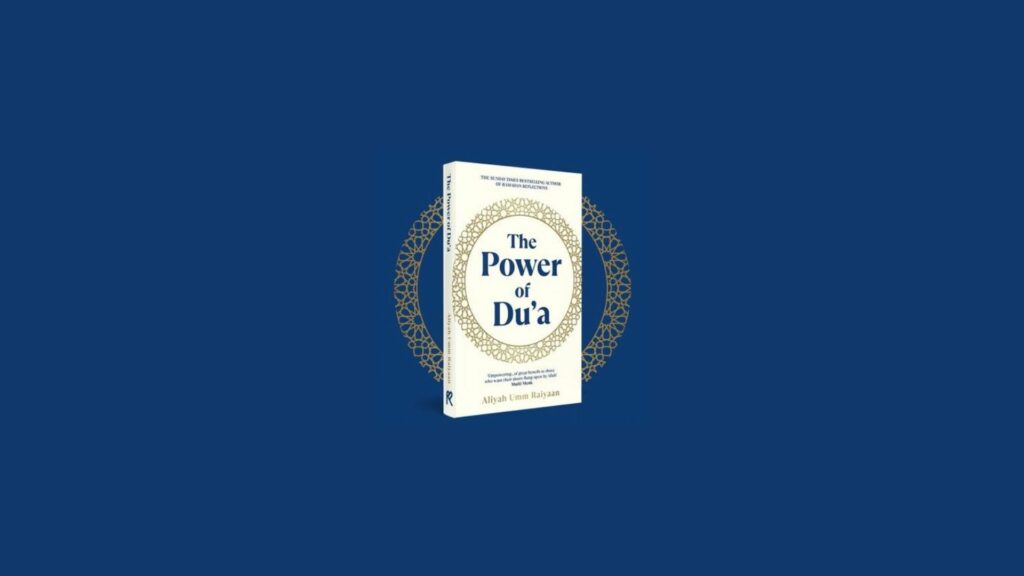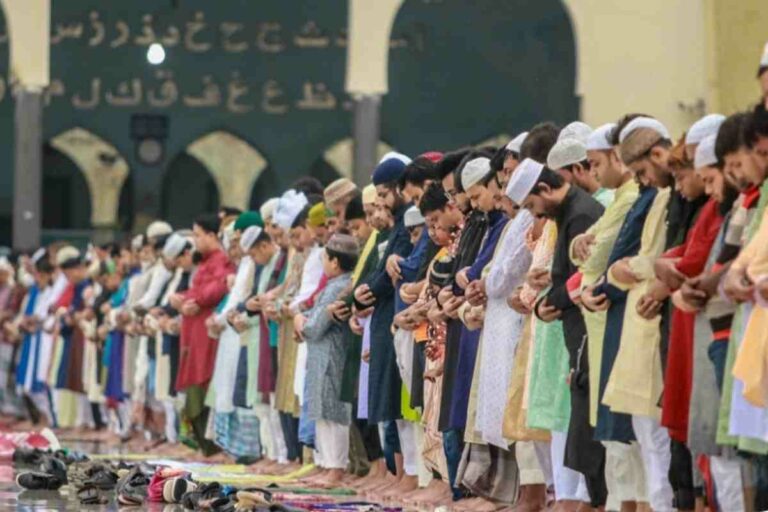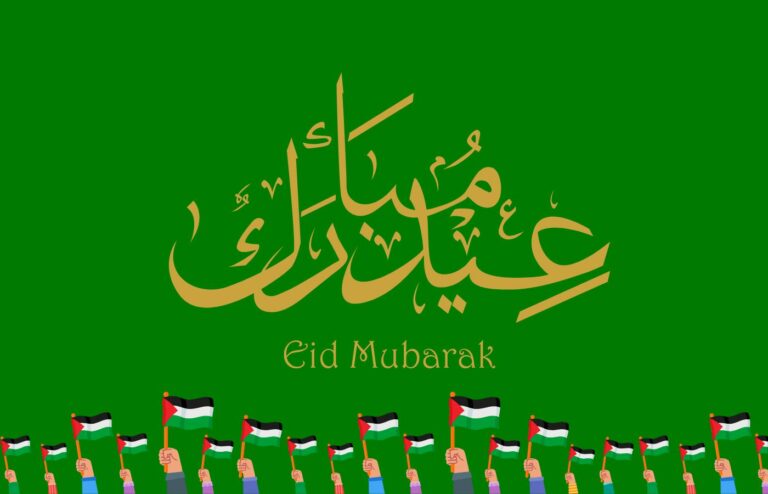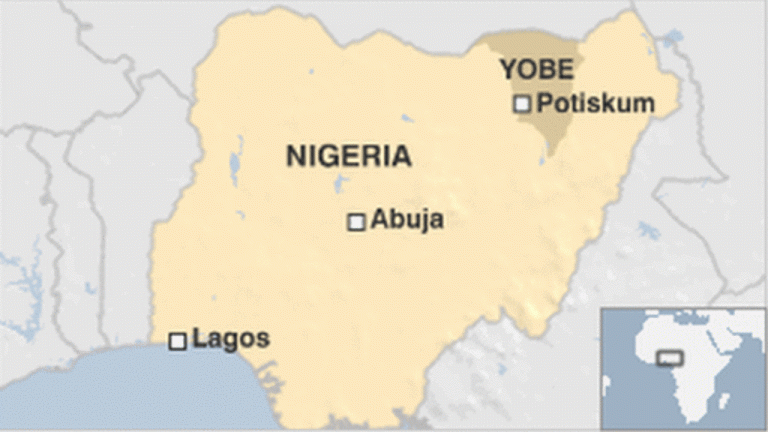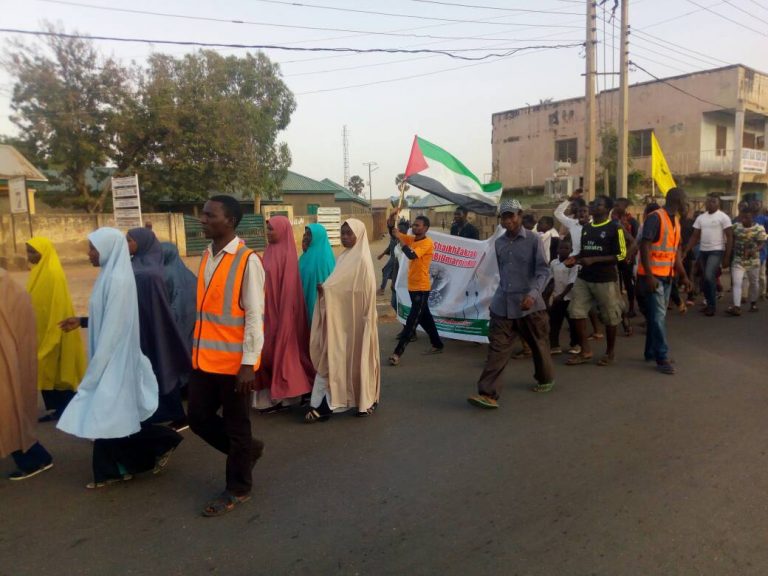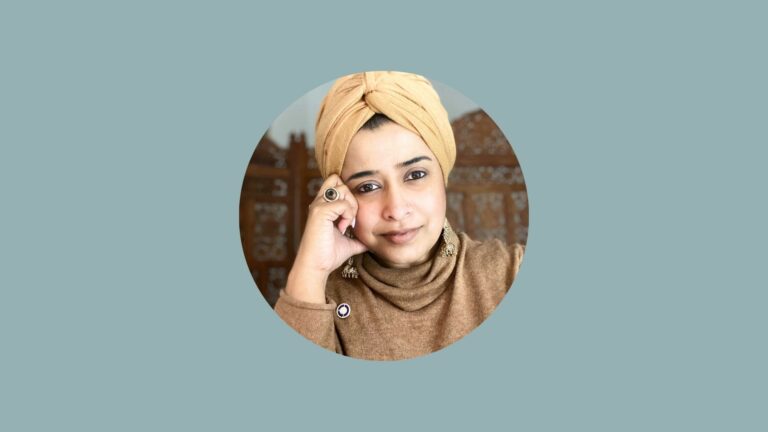We had the pleasure of hosting Aliyah Umm Raiyaan again for her second book, The Power of Dua, in perfect time and preparation for Ramadan. Our 2024 Prison Packs will include a copy of The Power of Du’a for Muslim prisoners – find out more here. This event was chaired by Kosser Abdul Aziz.
Watch here:
In the introduction, Kosser mentioned that is has been almost a year since Sr Aliyah came to IHRC for an author evening for her first book, Ramadan Reflections. Aliyah said, “as I was coming down the stairs, it was a déjà vu moment, and I cannot believe it has been 11 months, that is crazy”.
Kosser Abdul Aziz: How did The Power of Dua come about?
Aliyah Umm Raiyaan: After Ramadan Reflections was published, the publisher contacted me and asked what do I want to write about for book two? I was quite surprised at that. I started thinking about some topics and during a meeting at the Penguin office, one of the team members that had attended the launch of Ramadan Reflections, mentioned dua. She isn’t Muslim, but she was really touched by the stories that were being discussed at the book launch and the way the sisters were interacting. In that meeting, she said, “what about dua? Because when I was at the book launch you spoke about dua, how Ramadan Reflections came about as a result of dua and people were talking about dua”. It was an oft-repeated topic and I thought it sounded like a good idea, I liked it. We decided upon dua and the rest is history I guess.
Kosser Abdul Aziz: the first draft of Ramadan Reflections was completed in a month; how long did it take you to write The Power of Dua?
Aliyah Umm Raiyaan: This question was asked at the book launch and I was a little bit shy to answer because the same member of the team was there again and I kept this to myself; I was given a longer amount of time to write the book. However, due to being really busy, I wrote the majority of it in less time than Ramadan Reflections. There was just so much going on and I think we have to accept the way that we work and some of us work well under pressure, even if it is stressful for everyone else around us.
Kosser Abdul Aziz: How would you describe the book’s ideal reader?
Aliyah Umm Raiyaan: The Power of Dua is for anyone and everyone. Anyone who is on a journey to worship of Allah, to come closer to Him, someone who is trying to navigate this life, and wanting to find solutions through their relationship with Allah.
There are some of us who have a very strong relationship with dua and some of us are struggling. The book is for both; in each chapter there is a dua story.
I believe that I have a consistent relationship with dua. I cannot live without dua. But, even then when I was writing the stories, I was crying because they just reminded me of the power of Allah SWT and He just interacts with us in such a beautiful way. He doesn’t just give us what we want, He gives us what we need, at the right time, in the right manner, with the right people–it is just perfect.
Kosser Abdul Aziz: The stories are so powerful. At times I found myself smiling, at times I found myself crying. What will the power of dua bring to Muslim prisoners [as the book is going into this year’s prisoner packs]?
Aliyah Umm Raiyaan: Hope. My dua is that the book gives the prisoners a renewed sense of hope in their Lord and that life can become better, life can change, everything is possible. What seems impossible can be possible with Allah. I hope they can find comfort, solace and beautiful company by nurturing their relationship with Allah through dua.
Kosser Abdul Aziz: Who has been the biggest supporter of your writing?
Aliyah Umm Raiyaan: My kids. My beautiful children. They have sacrificed so much. I cannot tell you, right up until now, with all the events and interviews taking place, they don’t complain Allahumma barik, they are patient. They have made this possible. When brothers and sisters message me on social media or email me to thank me for the book, I think no, make dua for my children because without them this would not have been possible.
Kosser Abdul Aziz: When you are speaking to Allah, you don’t use the word ‘please’. When I speak to Allah, I am saying ‘please Allah this’ and ‘please Allah that’; is there a reason you don’t say please?
Aliyah Umm Raiyaan: Everyone’s relationship with Allah is very different and there is a better way of making dua as per the Qur’an and the sunnah, how you should start dua, how to praise Allah, etc.
But you are right. I have not used the word ‘please’ and I do not use the word ‘please’ because for me… we say please as a formality. But the way I see my relationship with Allah is that He tells me He is near. When the companions asked the Prophet SAW about many things, a verse was revealed and Allah would say ‘tell them’; Allah removes the Prophet from the equation and linguistically in the Qur’an and just says ‘I am Near’. So, the way I see Allah is that He is so close to me that I don’t need to have formalities with Him. When someone says ‘Allah, I want a new job, please’, it’s almost like ‘if you can’, kind of thing, ‘if you can, that would be great’.
The way that I make dua is that, Allah, I know you are the All-Knowing, the All-Powerful, I know everything is within your grasp, and I want this, if you know it is good for me, bring it. That is how I make dua. When I make dua for my children, I say ‘You are the One who never breaks promises and You have promised, You have told me that in my duas as a mother, it is answered. So, because You are a Lord that does not break His promises, here I am making dua for my children and I expect my duas to be answered in the best way’.
I can’t say ‘please’ because ‘please’ feels like limiting the possibilities and there are no limitations with Allah. I am very passionate about this because I just think that we often make dua placing limitations on Allah and we come to Him with a ‘maybe’. That is a problem, that might be why you are not seeing your duas answered. You need to come to Him and make dua as it is a case of when, not if.
Other topics discussed during the event and Q&A session: book and chapter structure, the front cover design, writing the stories in first person, writer’s block, prisoner packs, her story of writing a book was an answer to her dua, advice for those wanting to wite and publish a book, read an excerpt, and answered questions from the audience.

